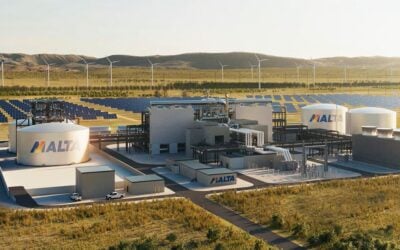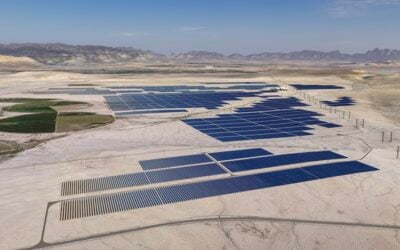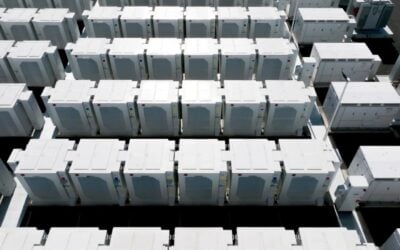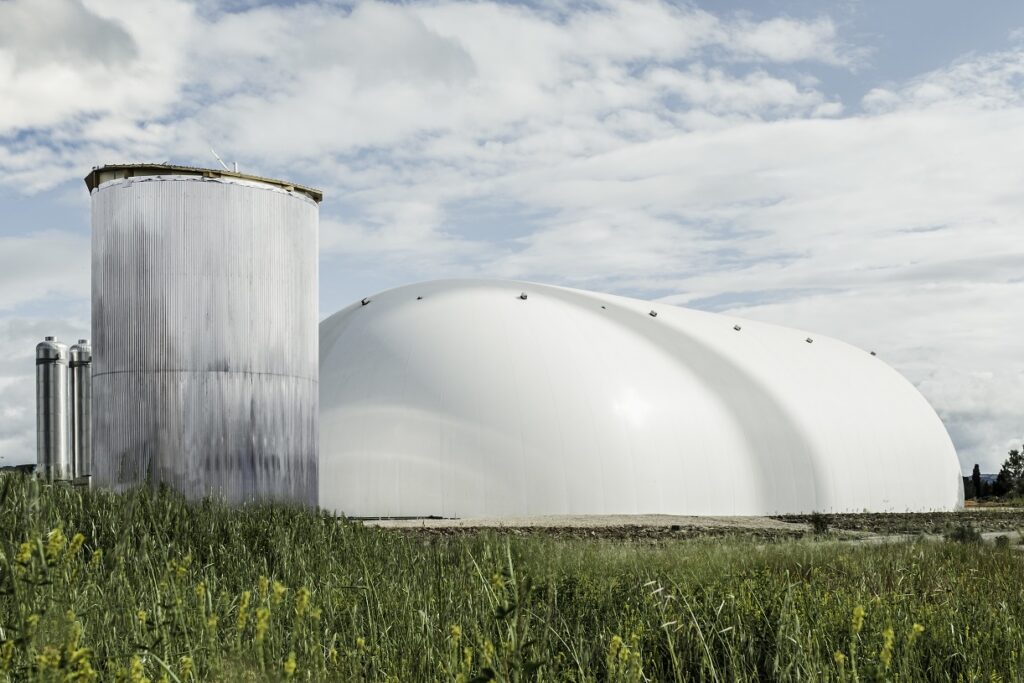
Energy Dome, the European startup with an energy storage system technology based on CO2 and targeted at long-duration applications, has closed its Series B funding round.
The Italy-headquartered company announced the €40 million (US$44.15 million) closing today. The round was led by Eni Next, the venture capital (VC) arm of Italian oil company Eni and co-led by the VC arm of private bank Intesa Sanpaolo, which is also Italian.
Enjoy 12 months of exclusive analysis
- Regular insight and analysis of the industry’s biggest developments
- In-depth interviews with the industry’s leading figures
- Annual digital subscription to the PV Tech Power journal
- Discounts on Solar Media’s portfolio of events, in-person and virtual
Also taking part were a mix of existing and new investors into the company, including Barclays Sustainable Impact Capital, Japan Energy Fund and US climate tech accelerator Elemental Xcelerator.
Energy Dome makes a ‘CO2 Battery’ that compresses carbon dioxide gas while storing heat produced by the adiabatic compression process, then liquifying the CO2. The evaporating CO2 is subjected to the stored heat and then expanded under pressure to drive turbines that generate electricity in a closed loop process.
The startup has one megawatt-scale commercial demonstration project in operation already and claims the technology can charge and discharge with a roundtrip efficiency (RTE) of around 75%. While that is lower than lithium-ion battery storage, which typically achieves higher than 95% RTE, Energy Dome claims it can be a much cheaper way to store energy for hours at a time.
Standardisation means rapid Capex reduction, company claims
In a recent interview VP of strategy, corporate development and investor relations Ben Potter told Energy-Storage.news the technology can come in at half the Capex of lithium-ion, while around 10 hours of storage is the CO2 Battery’s ‘sweet spot’.
Potter noted that founder and CEO Claudio Spadaccini, came up with the idea and developed it through combining various principles learned from working as an engineer and entrepreneur in different industries.
One result of that is that the technology can be assembled using off-the-shelf components which Energy Dome sources from Tier 1 OEMs in existing industries, rather than requiring a whole set of bespoke or heavily customised components made-to-order.
“What that translates into is very scalable supply chains which are ready to go, and we don’t have to build a factory to go to market, we just get an order from customers and we place back-to-back orders from our suppliers,” Potter said.
Energy Dome also believes there is good scope for cost reduction. It is currently selling its ‘first-of-a-kind’ CO2 Battery at €220kWh per kilowatt-hour including EPC cost and margin for a 20MW/200MWh configuration. However, according to Potter, the company could get Capex down by 44% if making between 30 and 50 more identical units.
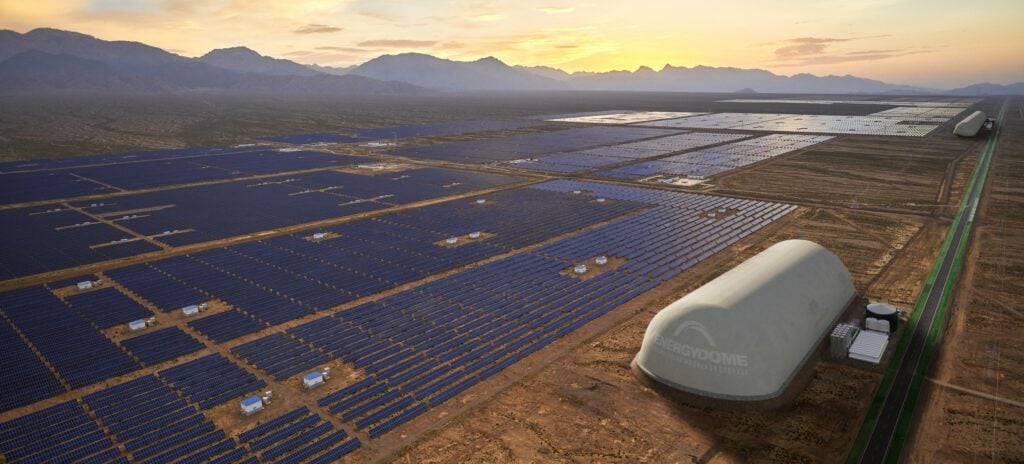
The company said today that the latest round brings the amount invested into it to EU54 million since it was founded in 2020. In January, it also got €17.5 million (US$18.5 million) grant and equity financing from the European Commission-founded European Innovation Council.
Series B proceeds will be used to further commercialise the technology and help Energy Dome expand into key markets, with the company naming the US as a market of “specific focus”.
There is a claimed pipeline of 9GWh opportunities for the CO2 Battery across markets in the Americas, Europe and Asia, while the company will have built its first two full-sized 20MW/200MWh units and have them operational by the end of 2024 – the project in operation in Sardinia since last summer is a smaller-scale and shorter duration 2.5MW/4MWh system.
Energy Dome has attracted the attention of some big names, with Denmark’s Ørsted signing a Memorandum of Understanding (MoU) last September to explore the feasibility of a 200MWh CO2 Battery project.
While the company therefore does see a massive addressable market opportunity, and like other long-duration energy storage (LDES) providers sees the global drive to decarbonisation as an inevitable driver of demand, Potter said there are challenges that need to be overcome.
These challenges are not to be found in the technology space, but rather in markets, policy and regulation, with few energy markets around the world valuing the capacity value of several hours of stored energy.
This shared challenge for the LDES industry is about “solving the market offtake side,” Potter said.



